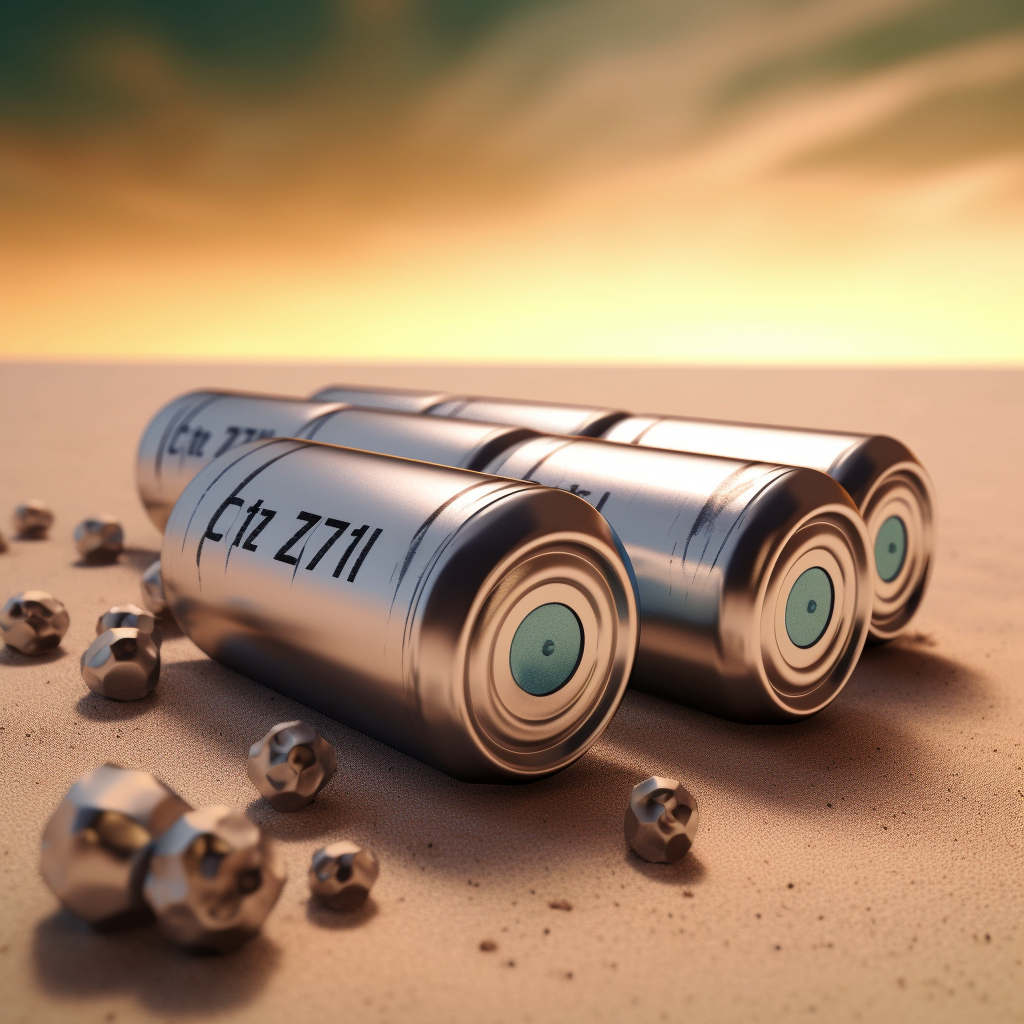Climate change is a pressing issue that demands immediate and effective solutions. The transition to renewable energy sources and the development of energy storage technologies are essential to reducing greenhouse gas emissions and achieving a sustainable future. One promising solution lies in the innovative technology of zinc-ion batteries. This article will delve into the significance of energy storage in combating climate change, the potential impact of zinc-ion batteries, and how they can contribute to a sustainable future.
Section 1: The Importance of Energy Storage in Combating Climate Change
1.1 Intermittency of Renewable Energy Sources
The shift towards renewable energy sources, such as solar and wind power, is crucial in the fight against climate change. However, these sources are intermittent, meaning they generate energy only when the sun shines or the wind blows. This creates a challenge in supplying consistent power to the grid.
1.2 The Role of Energy Storage
Energy storage technologies can address the intermittency issue by storing excess energy when renewable energy sources produce more than needed and releasing that stored energy when there is a shortage. This helps balance energy supply and demand and ensures a stable and reliable power supply.
1.3 Greenhouse Gas Emissions Reduction
Energy storage can significantly reduce greenhouse gas emissions by enabling the integration of more renewable energy into the grid. With increased storage capacity, we can rely less on fossil fuel-based power plants, which are major contributors to carbon emissions.
Section 2: Zinc-ion Batteries: The Game-Changing Technology
2.1 What are Zinc-ion Batteries?
Zinc-ion batteries are a type of rechargeable battery that uses zinc ions as the charge carrier. They offer several advantages over traditional lithium-ion batteries, including lower cost, higher energy density, and increased safety.
2.2 Advantages of Zinc-ion Batteries
- Cost-effective: Zinc is an abundant and inexpensive material, making zinc-ion batteries more cost-effective than lithium-ion batteries.
- Energy Density: Zinc-ion batteries can store more energy per unit volume or mass, enabling longer durations of energy storage.
- Safety: Zinc-ion batteries are less prone to thermal runaway and combustion compared to lithium-ion batteries, reducing the risk of fires and explosions.
Section 3: The Potential Impact of Zinc-ion Batteries
3.1 Accelerating the Adoption of Renewable Energy
With the advantages offered by zinc-ion batteries, they have the potential to accelerate the adoption of renewable energy. By providing affordable, high-capacity energy storage solutions, they can help integrate more renewable energy into the grid and reduce our reliance on fossil fuels.
3.2 Decentralizing Energy Storage
Zinc-ion batteries can be scaled down for residential and small-scale applications, allowing for decentralized energy storage. This can enable more people to store energy generated by their rooftop solar panels, further reducing the need for fossil fuel-based power plants.
3.3 Electrification of Transportation
Zinc-ion batteries can also play a role in the electrification of transportation by providing a safer, more cost-effective, and higher energy density alternative to lithium-ion batteries. This can encourage the adoption of electric vehicles, reducing greenhouse gas emissions from transportation.
Section 4: Paving the Way for a Sustainable Future
4.1 Supporting Clean Energy Initiatives
The adoption of zinc-ion battery technology can support global clean energy initiatives by providing a viable energy storage solution. This can help countries achieve their carbon reduction goals and mitigate the impacts of climate change.
4.2 Fostering Innovation and Job Creation
The development and deployment of zinc-ion battery technology can foster innovation and create job opportunities in the clean energy sector. This can contribute to economic growth and promote sustainable development.
4.3 Building a Resilient Energy System
The integration of zinc-ion batteries into the energy system
can enhance its resilience by providing reliable and consistent power supply. This can reduce the risk of blackouts and support critical infrastructure during extreme weather events and other disruptions.
Conclusion
Zinc-ion batteries represent a promising energy storage technology that can help combat climate change. Their advantages over traditional lithium-ion batteries, such as cost-effectiveness, high energy density, and safety, make them a valuable addition to the renewable energy landscape. By accelerating the adoption of renewable energy, decentralizing energy storage, and supporting the electrification of transportation, zinc-ion batteries can contribute to a sustainable future and help mitigate the impacts of climate change.


